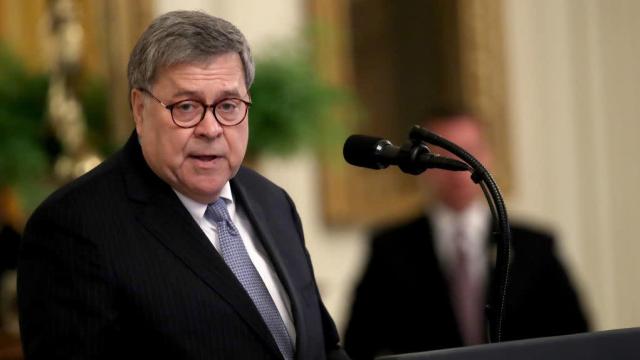U.S. Attorney General and Droopy Dog impersonator William Barr is set to request Facebook halt its expected expansion of encrypted messaging through its networks, according to a draft of a letter obtained by Buzzfeed and expected to publish tomorrow.
Facebook announced earlier this year that, as part of its efforts to better integrate its core product with Instagram and Whatsapp, the platform would likely pursue end-to-end encryption on all messages, which would ostensibly hide the contents of messages from everyone, including Facebook itself, besides senders and recipients. However, this increase in privacy would likely make it more difficult for researchers and, crucial to the U.S. Department of Justice, law enforcement to analyse the information being sent across Zuckerberg’s vast digital empire.
“Risks to public safety from Facebook’s proposals are exacerbated in the context of a single platform that would combine inaccessible messaging services with open profiles, providing unique routes for prospective offenders to identify and groom our children,” the draft reads, according to Buzzfeed. “Security enhancements to the virtual world should not make us more vulnerable in the physical world.”
The Justice Department and other U.S. law enforcement agencies have long sought to limit the spread of strong encryption or force tech firms to build in “backdoor” access, which would effectively negate the privacy and security the technology provides because a “backdoor” is just a weakness anyone who finds the vulnerability can exploit.
The war over encryption percolated into the mainstream in 2015, when the FBI demanded Apple break the encryption on a terrorist’s iPhone. This time, as the reported Barr letter exemplifies, the Justice Department is pushing the simplistic narrative that “encryption is dangerous for kids.”
In its present form, the letter — which was reportedly co-signed by the U.S. Secretary of Homeland Security, UK Home Secretary and Australian Minister for Home Affairs — asks Facebook to put a pin in end-to-end until it can alleviate these agencies’ concerns.
In response to the leaked draft letter, a Facebook spokesperson told Gizmodo that the company will still comply with applicable laws, but that it “strongly oppose[s]” efforts to build backdoors into its encryption technology. The full statement reads as follows:
“We believe people have the right to have a private conversation online, wherever they are in the world. As the US and UK governments acknowledge, the CLOUD Act allows for companies to provide available information when they receive valid legal requests and does not require companies to build backdoors.
We respect and support the role law enforcement has in keeping people safe. Ahead of our plans to bring more security and privacy to our messaging apps, we are consulting closely with child safety experts, governments and technology companies and devoting new teams and sophisticated technology so we can use all the information available to us to help keep people safe […] We strongly oppose government attempts to build backdoors because they would undermine the privacy and security of people everywhere.”
Encrypted messaging is the second major Facebook announcement the U.S. government has raised serious concerns about — the first being Libra, a digital currency announced in June, which was met with almost immediate scepticism from lawmakers.
The DoJ is in the midst of a wide-reaching antitrust probe against major tech firms, Facebook chief among them. Linking its platforms through interoperable messaging — encrypted or not — is widely believed to be a strategy meant to resist potential antitrust enforcement.
It’s also worth considering how much longer Barr might hold his current office, given his level of involvement in Trump’s recent activities with Ukraine (and Italy? And China???), which triggered an impeachment inquiry.
